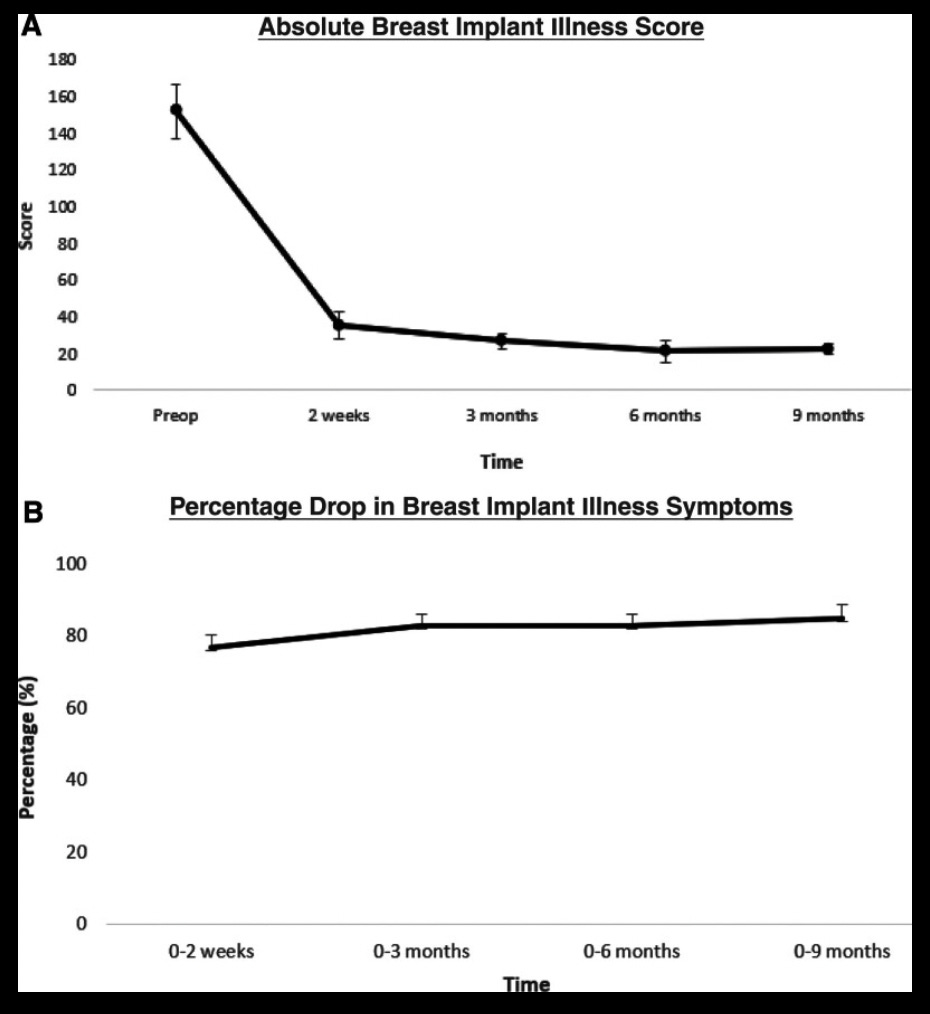Welcome to this week’s Bendy Bulletin! October 20th marks International Mastocytosis and Mast Cell Diseases Awareness Day - a time to shed light on these conditions and support those affected. This week, we’ll dive into a groundbreaking study, exploring how mast cell activation might play a key role in an emerging health concern.
Breast Implant Illness & Mast Cell Activation: Unveiling the Connection
In honor of International Mastocytosis and Mast Cell Diseases Awareness Day, we’re turning our attention to a fascinating new study, "Breast Implant Illness May Be Rooted in Mast Cell Activation: A Case-Controlled Retrospective Analysis,” from the Annals of Surgery. This research shines a light on the potential link between Breast Implant Illness (BII) and Mast Cell Activation Syndrome (MCAS), offering insights that could change the way both conditions are understood and treated.
In 1995, I had the unique experience of attending a taping of the Oprah Winfrey Show. The guest that day was a representative from Dow Chemical, and the topic? Breast implants. As someone who keeps up with medical research, I stood up and made a statement quoting a study from the Mayo Clinic, which at the time did not find increased immune problems in those with breast implants. My comment even made it into the final production of the episode! What made the moment especially ironic was that I had gone with my mother and had jokingly told her, “Please don’t stand up and say something and embarrass me.” In the end, I was the one who did exactly that.
Since then, I’ve completely changed my mind. Today, we have so much more data linking breast implants to immune issues, including a significant connection between Breast Implant Illness (BII) and Mast Cell Activation Syndrome (MCAS). I’ve always believed in evolving with the science, and I know many of my followers appreciate when someone can admit they were wrong and embrace new knowledge. This brings us to the important study that sheds new light on this very connection… let’s dive in!
The symptom profiles of MCAS and BII overlap significantly, with shared experiences such as chronic fatigue, brain fog, joint pain, and skin issues. This connection suggests that for some individuals, what is often dismissed as unrelated symptoms could, in fact, be tied to mast cell activation.
The study found that mast cell counts were notably increased in patients with BII, suggesting that the implants may trigger or exacerbate mast cell activity in the body. This discovery raises important questions about the relationship between the immune system and foreign materials like breast implants.
The findings are particularly promising for those suffering from BII, as the study reports a remarkable reduction in symptoms following implant removal. Two weeks after removal, the mean BII score dropped by 77%, and by 9 months, it had decreased by 85%. These results suggest that removing the implants could significantly improve quality of life for those affected.

Interestingly, the study also found that some individuals may have unrecognized BII, meaning their symptoms could be mistakenly attributed to other conditions, delaying proper diagnosis and treatment. This highlights the importance of further study to better understand if BII represents an implant-driven escalation of preexisting MCAS or if it develops independently as a result of the implants.
While more research is needed, this study opens the door to new possibilities in diagnosing and treating BII and MCAS. For those struggling with unexplained symptoms, these findings offer hope and a clearer path toward relief.
What are your thoughts? Comment below to join the conversation.
“Breast Implant Illness May Be Rooted in Mast Cell Activation: A Case-Controlled Retrospective Analysis” from the Annals of Surgery
Read through the full analysis discussed in this week’s newsletter!
“Chemical Intolerance and Mast Cell Activation: A Suspicious Synchronicity” from the Journal of Xenobiotics
Until recently, little was known about the biological mechanism involved that could explain the multisystem symptoms associated with Chemical Intolerance or CI. This paper addresses a newly identified biomechanism for disease, which may underlie a host of "medically unexplained symptoms" triggered by xenobiotics (chemical foreign to life).
LAST THURSDAY: Lara Heimann
We were so fortunate to have physical therapist and yoga instructor Lara Heimann join the podcast, where she shared her deep knowledge on how movement impacts pain management for people with hypermobility. Her insights into integrating mindful movement with injury prevention provided practical takeaways for improving your overall well-being.
Hypermobility Hack: For those with hypermobility-related shoulder and neck issues, performing exercises like modified side planks with light weights is recommended. The key is to focus on proprioception rather than strength-building, starting with light objects to give feedback and stability. These exercises can be done on or adapted from the floor to suit the individual's needs. Lara shares an example where a person introduced a small daily exercise using a light object, like a 1-pound weight or a can, for just a minute or two. This increased proprioceptive feedback, allowing the brain to respond better and improve body awareness.
THIS THURSDAY: Adji Cissoko
This week, we're excited to host ballerina Adji Cissoko, who will discuss the impact of proper training and body awareness on performance for hypermobile dancers and athletes. I was able to sit down with Adji at the Vail Dance Festival, where she shared her knowledge of dance and health and lifestyle coaching.
Well that’s all for this week; thank you so much for reading and supporting this newsletter. Talk to you soon, Bendy Buddies!
Yours in Health,
Dr. Bluestein









So not surprised to see this... I had severe BII and I had a feeling it was linked with MCAS the more I learned about it. It makes sense that a foreign chemical-full item inside your body will set off inflammatory responses over time. Removing them was one of the best things I ever did and I got significantly better fast after the removal
A study out of the US and Australia. Why I am not surprised at the conclusion! No one looking into the effects of water fluoridation in those countries? The effect of fluoride on mast cells has been known for decades! Kuza et al (1982):"On the mechanism of histamine release from sodium fluoride-activated mouse mast cells"
https://www.sciencedirect.com/science/article/pii/S001393512301719X
Being poisoned has other effects too: "A judge has ordered an EPA risk assessment amid fear that additive that strengthens teeth could harm children’s IQs" A judge has ordered an EPA risk assessment amid fear that additive that strengthens teeth could harm children’s IQs."
https://www.theguardian.com/us-news/2024/oct/04/fluoridation-water-epa-risk-assessement
Disclaimer: I have hEDS & I have breast implants, I had anaphylaxis years before having breast implants. Weekly episodes of anaphylaxis living in Australia where the water and local food supply is poisoned by the state governments via water fluoridation. Very rarely get episodes of anaphylaxis now living in country that does not poison its population (still have my breast implants).